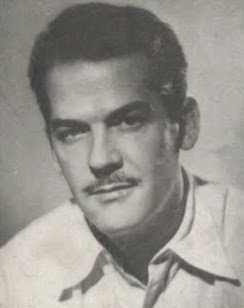A Christmas gift read on Christmas Day, "The Gerrard Street Mystery" is one of the very few Christmas ghost stories to come out of Victorian Canada. You'll get no argument from me if you disagree. There is a ghost, but the holiday is mentioned only briefly. Though the climax takes place in December 1861, the narrator and hero misses Christmas Day itself because he is unconscious.
The title story of
The Gerrard Street Mystery and Other Weird Tales, issued in 1888 by Rose Publishing, this is, of course, the work of a dead man. I've always found it interesting that the book was put together within weeks of his funeral. Why the rush? There couldn't have been much hunger for such a thing; John Charles Dent was not known as a writer of fiction, but as a journalist historian, and biographer. Prior to that, he'd been a lawyer, which may account for the legal-sounding start to this weird tale:
My name is William Francis Furlong. My occupation is that of a commission
merchant, and my place of business is
on St. Paul Street, in the City of Montreal. I have resided in Montreal
ever since shortly after my marriage,
in 1862, to my cousin, Alice Playter,
of Toronto.
William gives a brief, dry account of his early life – stained by the loss of his parents – in order to explain how it was that he came to be raised by his uncle, Richard Yardington, a prominent Toronto businessman. Cousin Alice, was not so unfortunate in that she lost only her mother. However, as her father is a man of "dissipated habits," she too was taken into Uncle Richard's care. As the years pass, William's "childish attachment" to Alice ripens to "tender affection," and the two become engaged. Though their uncle shares nothing of "the prejudice entertained by many people against marriage between cousins," he is a firm believer that his male ward should demonstrate the ability to provide. Thus, William embarks for Australia, so as to better oversee his business interests.
Four years pass, during which William amasses a respectable return. Uncle Richard writes calling him home. William responds that obligations will prevent a return for a further six months, but his business wraps up early, and he is soon on a ship sailing from Melbourne. No use in writing Uncle Richard or Alice of course; he'd likely arrive in Toronto on the same day as his letter.
Mystery in "The Gerrard Street Mystery" begins
en route when William, on a lark, asks whether there might be something for him in General Delivery at the main post office in Boston's Merchant's Exchange Building.
He is gobsmacked to discover that there is!
The letter is from Uncle Richard*:
How could affectionate Uncle Richard have known that his ward would be in Boston? Why would he think that William might ask for a letter at General Delivery? How could Uncle Richard have known he'd be home for Christmas? Most of all, what sorrow has befallen beloved Alice?
Answering these questions would only spoil the story. Instead, I'll borrow a page from my friend J.F. Norris of
Pretty Sinister in sharing three things I learned in reading the story:
William returns to Toronto via the mid-day express from Hamilton. As his train arrives at Union Station, he spots Uncle Richard in the Waiting Room. Until then, I had no idea that Union Station of 1861 was so very, very small.
Not to be outdone by Boston, the main Toronto post office also figures. Though it no longer serves to carry Her Majesty's mail, the building still stands. Today, it's most famous as the building from which convicted criminal Conrad Black removed his famous 13 file boxes.
A fleeting reference to the book
The Debatable Land Between This World and the Next (1871) introduced me to the Scottish-American social reformer and spiritualist Robert Dale Owen. Much of the rest of the Christmas Day was spent dipping in and out of his other work. In
The Policy of Emancipation (1863) I found these words, reproduced from 23 September 1862 letter Owen sent to President Lincoln:
In days when the public safety is imminently threatened,
and the fate of a nation may hang upon a single act, we
owe frank speech, above all other men, to him who is
highest in authority.
A wise man was Mr Owen.
Here's wishing us all a Happy and Peaceful New Year.
Object and Access: A very attractive chapbook, letterpress printed in 10pt Baskerville on Reich Savoy paper. Issued in an edition of thirty-five, it was a Christmas gift from Three Bats' publisher Jason Byers.
* This image from the very poor microform copy of The Gerrard Street Mystery and Other Weird Tales available at the Internet Archive.























































